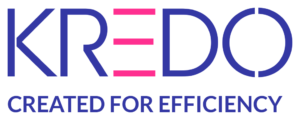Empower Your Learners With A Learning Platform
The onboarding process is vital for retaining the company's talent pool. As per a Brandon Hall Group study, organizations with a strong onboarding process boosted the new hire retention rate by 82% and productivity by over 70% [1]. In addition to the socialization process, advanced learning tools make an onboarding process complete.
According to a CareerBuilder and SilkRoad 2019 study, 93% of employers accepted that a good onboarding experience impacts the new joiner's decision to stay in the company [2]. Therefore, onboarding should be an integral part of the corporate training program.
Here are the objectives of corporate onboarding programs:
- Integration of the new joiner into the culture of the organization
- Explanation of roles and regulations
- Compliance requirements
- Reduction of time to proficiency
The onboarding process has several benefits. Companies that had structured and formal onboarding programs:
- Reported higher employee engagement
- Reached performance goals
- Had higher retention rates and
- Showed an increase in productivity
However, the onboarding landscape is not without its pothole of woes. Some of the challenges are:
- Organizations do not have a formal and upgraded onboarding process
- Lack of tools and technology to automate and lay out onboarding programs
- Organizations view the onboarding program merely as paperwork
- Underutilization of employee onboarding practices
Most of these onboarding challenges can be mitigated by using an efficient learning platform. A learning path can be carved out in the Learning Management System for a formal onboarding process. This can incorporate text, image, video-based templates and gamification, and immersive technologies such as Virtual Reality (VR).
There are five main goals of onboarding. These are impression, introduction, integration, immersion, and independence.
- Impression: How the recruit feels about the organization.
- Introduction: Knowing more about the organization and the recruit's roles and responsibilities.
- Integration: Recruits' understanding of their and the teams' contribution to the company.
- Immersion: Honing the existing skills of the recruits to enable them to perform the required tasks.
- Independence: Performance and delivery of the required tasks by the new employee.
We will now understand how the learning platform can help achieve the onboarding goals through different phases. There are generally 3 phases of the onboarding process.
1. Orientation
The new hire is introduced to the organization's structure and the key members in this phase. The handbook, organization's values, vision, mission, policies, etc., are shared with the recruits.
The onboarding process can start even before the first day at the office. A welcome module can be created on the learning platform, just like marketing brochure folders. This module will contain the employee's handbook on roles and responsibilities, organization culture, mission, and structure. This module can be shared with the new hire along with the offer letter or on the first day of the office. This module will make the new joiners better informed. They will be prepared with the questions they can ask their managers on the joining day.
Over the next few days or weeks, modules can be created to describe the business units, various products and services, customer profiles, competitor analysis, etc. The learning platform's welcome modules can contain videos with messages from the top management and a personalized welcome video from the team or team leader.
The gaming elements and templates can be used to walk the recruit through the information about the company. Additionally, interactivity can be built while explaining the organization's goals, products, and services. The video template can upload recorded orientation videos by the heads of different departments. This will save their time from repeated presentations.
Goals of onboarding at this phase: impression, introduction
2. Role Training
Before beginning the role training, the team lead can share a layout of job roles in the team. This will help the leader and the recruit discuss goals and expectations for the latter. This becomes vital in the context of diversity, equity, and inclusivity (DEI), as this step gives the scope for stepping out of role stereotypes based on the uniqueness of the joiner.
Once the roles and responsibilities are decided, the learning path can include samples, reference materials, and task-specific learning capsules. It helps build recruits' knowledge of processes, functions, and roles.
The learning platform templates can lay out the major job roles. In addition to the welcome and orientation modules, the training nuggets can include reference material in the form of links, documents, or videos. For example, scenario-based training modules can be helpful for frontline staff, product information for insurance agents, product placement for retail shops, process management for travel and tourism, etc.
Goals of onboarding at this phase: integration, immersion
3. Ongoing Development
In this phase, plans are created for the individual's growth in alignment with the organization's goals. Task-specific training modules can be authored at this stage.
The learning platform should provide ease in creating effective learning and engaging courses for the new joiners. The templates should provide the scope to present the information in a way that reflects the culture and ethos of the organization.
Goals of onboarding at this phase: independence
The dynamic learning platform incorporates interactivity templates, gamification elements, memory boosters, remediation, and Virtual Reality to create an immersive experience for any of the onboarding phases.
Conclusion
The global onboarding market size will reach $793 million by 2022 as per an Apps Run The World 2019 study [3].
A dynamic, online, empowering learning platform can propel your onboarding program from a run-of-the-mill to a sky-high experience. Employees who have exceptional onboarding experiences are more likely to be extremely satisfied with their workplace. Investment in the onboarding learning programs will give rich dividends in enhanced employees' performance and engagement. This, in turn, has a positive effect on the company's bottom line.
Build a culture of learning by creating dynamic courses for an unparalleled learning experience with KREDO. It is a confluence of technology and communication, creativity and simplicity, purpose and fun, individual empowerment, and corporate excellence.
If creating a culture of learning in your organization is your priority, contact me or leave a comment below.
References:
[1] 10 Employee Onboarding Statistics you Must Know in 2022
[2] The Increasing Importance of Onboarding
[3] 122 Vital Onboarding Statistics: 2021/2022 Market Share Analysis & Data


